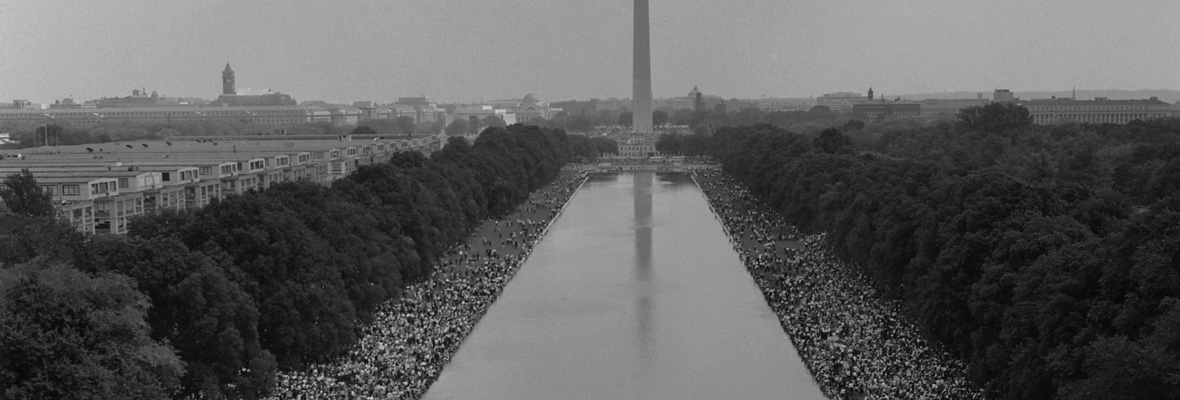Every president since 1976 has designated February as Black History Month. It’s a time to celebrate the achievements of blacks in American history. Amazingly, the nation and its historians largely ignored black history until the 20th century. Here are 15 inspiring people who can’t be ignored:
1. Carter G. Woodson
As a student at Harvard, where he received a doctorate, Woodson realized that books failed to accurately represent the role of blacks in U.S. history. He organized the first annual Negro History Week in 1926, during the second week of February, to coincide with Abraham Lincoln’s and Frederick Douglass’ birthdays. February would later become Black History Month.
2. Frederick Douglass
His 1845 autobiography “Narrative of the Life of Frederick Douglass” remains quite influential. Douglass’ mother was a slave, and his father was white — possibly, his owner. He documented the torture of slavery, refuting the South’s insistence of the so-called “happy slave.” Douglass’ blueprint for challenging racism is still relevant today.
3. Shirley Chisholm
Chisholm was the first black woman to serve in the U.S. Congress — holding office from 1969 to 1983. Her range of causes included education, unemployment benefits, and the food stamp program. Chisholm became the first black major-party candidate to run for president.
4. Ta-Nehisi Coates
Coates, an author, journalist, and educator, won the National Book Award for his memoir, “Between the World and Me.” It was a love letter to his son. His essay topics have ranged from arguing that President Obama’s election was not a cure-all for poverty in the ghettos — to criticizing Bill Cosby’s condescension of black America. Coates has won multiple National Magazine Awards and was a MacArthur fellow in 2015.
5. Aretha Franklin
Franklin scored her first No. 1 hit with her remake of Otis Redding’s “Respect,” which became a vital part of the civil rights soundtrack. Her five-decade career included more than 100 singles on the Billboard charts. She was the first female performer inducted into the Rock & Roll Hall of Fame.
6. Duke Ellington
Swing music, meanwhile, served as the soundtrack to the Harlem Renaissance in the mid-1900s. Ellington was its king. He wrote more than 1,000 songs, many of which are part of the Great American Songbook. This includes “Don’t Get Around Much Anymore,” and “I’m Beginning to See the Light.” He won the Presidential Medal of Freedom as well as a Pulitzer for special citation.
7. Hiram Rhodes Revels
Revels, the first African-American to serve in the U.S. Congress, represented Mississippi as a republican in the 1870s. During his one-year term, Revels spoke against an amendment to keep Washington D.C. schools segregated. He also championed employees who had been barred from working at the Washington Navy Yard because they were black.
8. Madam C.J. Walker
Born Sarah Breedlove, Walker mixed her first batch of medicinal sulfur and petroleum in an effort to cure her bald spots and dandruff. Through her worldwide travels for “Walker’s Wonderful Hair Grower,” she blossomed as a motivational speaker. Walker famously shared her story of being born on the planation where her parents were slaves. Black women who worked for Walker made more money in a day than they did in a week working in white people’s kitchens. She wound up a prolific philanthropist and entrepreneur. By the time Walker died in 1919, she had donated more than $100,000 to important causes.
9. Robert Abbott
Abbott founded “The Chicago Defender,” the black newspaper that heralded publications including “Jet,” “Essence,” and “Black Enterprise.” Abbott, along with others including Walker, was one of the day’s most prominent black millionaires. Abbott’s paper garnered more than a half million readers a week at its height.
10. Katherine Johnson
The history of space exploration doesn’t often cover Johnson, a key figure in NASA’s modernization. Johnson is one of many black women who worked in NASA’s Guidance and Navigation Department. Importantly, she helped calculate Apollo 11’s 1969 orbit.
11. Muhammad Ali
When Ali refused to be drafted into the Vietnam War, he met with several black athletes who supported him, including Jim Brown, Bill Russell, and Kareem Abdul-Jabbar. The group inspired Martin Luther King Jr., who praised Ali for his courageous stance on the war. Ali is widely considered to be the greatest boxer of all time.
12. James Baldwin
A novelist and playwright, Baldwin explored topics ranging from racism and poverty to homosexuality. As a poor, black, gay man, Baldwin believed his identity led to his ability to tell stories that needed to be told.
13. Maya Angelou
Angelou’s poetry and prose documents her turbulent life, including a rape at age 8 at the hands of her mother’s boyfriend. To support her family, she became San Francisco’s first black female cable car conductor and later worked as a calypso singer. She wrote her first novel, “I Know Why the Caged Bird Sings,” the first in a seven-part memoir, with the help of her friend Baldwin. She has won awards including the Presidential Medal of Freedom and three Grammys.
14. Henrietta Lacks
Even though she died in 1951, her cells are still saving lives today. Before Lacks died of cervical cancer, doctors took tissue from her tumor without her permission. Those cells are unusual because they reproduce quickly and stay alive through tests, and they’re still in labs today. They have played a role in developing treatments for a range of issues including polio, herpes, leukemia, Parkinson’s disease, and influenza. They also played a part in in-vitro fertilization, cloning, gene mapping, and cancer study.
15. Serena Williams
Williams has won a record 23 Grand Slam tennis singles titles including six U.S. Opens, seven Australian Opens, seven Wimbledon championships, and three French Opens. Tennis is a historically white sport, and Williams transcended it without hiding her blackness. She is unapologetically, proudly, herself.
